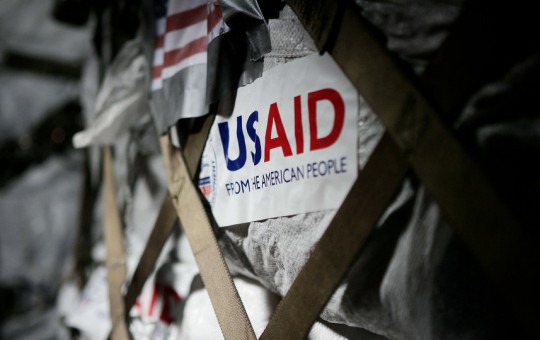The 2022 United Nations Climate Change Conference, also known as COP 27, was held in November. This year’s summit had the COCA-COLA company, one of the most polluting enterprises on the planet, as a curious and paradoxical sponsor. However, these conferences have become a usual space for large companies and economic interests, especially those linked to hydrocarbons, to lobby for a stop to the increasingly urgent government measures needed to mitigate and stop Climate Change. Economic interests always end up winning and the necessary actions are postponed to other summits as if we were not short on time.

Another revealing aspect is the selection of Egypt for the COP27 meetings, a country governed by a military dictatorship that violates human rights and also plans territorial transformation projects that could unleash enormous environmental problems in the country. In this context, the summit saw the participation of Venezuelan president Nicolás Maduro, who took part in the assembly for several days and gave an “impeccable” speech on “saving the planet, stopping Climate Change and changing the socioeconomic system,” alluding to Venezuela as an example to follow in economic, social and environmental matters. For those of us who know the serious environmental problems in the country, this speech has undoubtedly been a tribute to cynicism.

COP 27 closes with a group photo showing the political leaders of the main oil and gas-producing and exporting countries in the front row as if to mock people’s aspirations and the need to sustain human life on the planet.

Market forces and private interests prevail over the interest of life and nature. The unfortunate thing about this, beyond the media circus and generalized hypocrisy, is the increase in the consumption of fossil fuels that further accelerates the degenerative processes of the climate.
Chevron’s return
Given the geopolitical changes derived from the Russian invasion of Ukraine and the energy rearrangements that have occurred since, Maduro and the Opposition resumed talks after he arrived from Egypt, to which he had committed in Cairo during a conversation with Emmanuele Macron, president of France. As one of its first political-economic outcomes, this new round of dialogue led the US Department of the Treasury to grant a license to oil giant Chevron to continue its operations in Venezuela, which will represent an increase in production in the south of the Eastern Coast of Lake Maracaibo, one of the most affected areas by recurrent spills and environmental degradation as a product of the oil industry.
We will not delve into the economic and political analysis of this decision or a review of what has already been written; we want to emphasize its dimension of an environmental policy. In recent years, experts, communities and local fishermen have repeatedly warned about the recurrence of oil spills, not only in Lake Maracaibo -Venezuela’s oil sewer- but along the coasts of the states of Falcón and Carabobo and the fields and streams of the eastern Venezuelan plains, which drain into the Orinoco river.
The Venezuelan oil industry has enormous environmental liabilities that remain uncovered and unaddressed. A walk along Cabimas’ crowded Civic Center boardwalk reveals the sight of oily sands that have been in the area for weeks, months and even years, which build up day by day as the oil reaches the shore and solidifies because nobody is in charge of cleaning it. There are no authorities or organizations in charge of addressing the problem as the State oil company PDVSA and its partners turn a blind eye to the constant contamination. Fishermen in the state of Falcón denounce with anguish the pollution of the Venezuelan seas, its effects on fragile ecosystems necessary for the reproduction of species, and how a lifeless sea makes fishing impossible in its inert waters.
What is the commitment to address Climate Change? This is the greatest challenge we face as a species, yet we see how the business and political classes unite to place enormous obstacles to even thinking about confronting the issue. Politicians speak of a change to the system, contributions, measures and decisions, but the fact is we see the opposite, a policy of extermination and short-sightedness, the fight against life and the destruction of water. Are the COPs good for anything or are they a theater for the most perfidious political cynicism? How long will the planet be able to bear this situation?
Translated by Jose Rafael Medina




